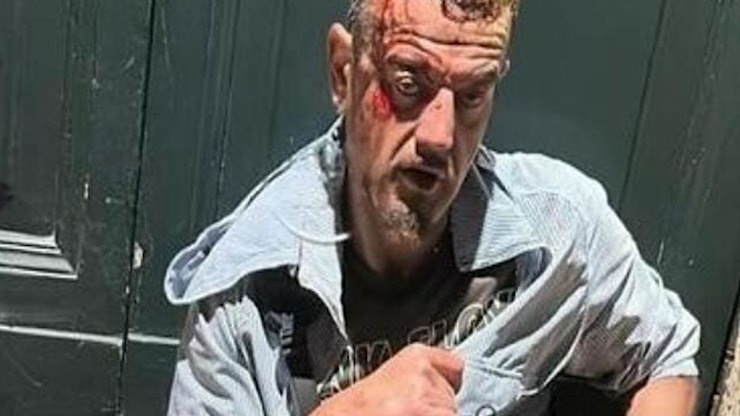He introduced himself as Rexal Ford, an American film producer with a script in hand and a plan to relocate a comedy from Malta to Italy. But Charles Francis Kaufmann, 46, was not who he claimed to be. On June 13, he was arrested on the Greek island of Skiathos, just days after the bodies of a woman and an infant—whom he had passed off as his daughter—were discovered hidden in the underbrush of Rome’s Villa Pamphili, one of the city’s most elegant public parks.
On May 7, he arrived at the firm’s office by taxi, accompanied by the woman and the baby girl. “He didn’t look like someone on the run,” a company executive recalled. “He wore jeans, a leather jacket, a T-shirt, and sneakers—casual, like a typical American filmmaker.” The woman and child waited quietly in a separate lounge during the meeting, which lasted just under two hours. Kaufmann handed over the script and left the premises the same way he came.
Exactly one month later, on the evening of June 7, the bodies of the woman and child were found in dense vegetation inside Villa Pamphili. The infant had been strangled; her body was discovered naked and partially concealed. The woman, presumed to be the mother, had also died under suspicious circumstances. Authorities began piecing together the man’s identity and whereabouts, though at the time, they still knew him only as “Rexal Ford.”
What followed was a rapid unraveling of Kaufmann’s carefully curated façade. Italian investigators, in coordination with the FBI, discovered that “Rexal Ford” did not exist. Kaufmann had been living in Europe under a false identity, using a legitimate U.S. passport issued in a fabricated name. For years, Kaufmann is believed to have received between $5,000 and $6,000 a month from his parents, on the condition that he stay away from the United States.
Communications from the FBI revealed a violent criminal history: at least five prior arrests in the United States for domestic violence and assault, including a conviction for assault with a deadly weapon that had left the victim seriously injured. He served 120 days in jail.
Between 2023 and 2024, he lived in Marsascala, Malta, with a woman and a child believed to be his. Known locally as Stella Ford, the woman was never officially registered, nor was the child. Kaufmann paid over €1,000 a month for rent using family-funded credit cards, frequented local restaurants, and occasionally pitched screenplay ideas. During that period, he promoted a fake film, The Great Culinary Battle of Malta, complete with fabricated posters and cast.
In a ten-page ruling signed by Rome’s preliminary investigations judge Flavia Costantini, prosecutors outline a portrait of extreme danger and a calculated attempt to obstruct justice. According to the judge, the suspect “demonstrated a high level of criminal capability” and a “relentless determination to carry out his criminal intent,” having stood by as his partner died, then hiding her body and destroying her clothing to hinder identification.
Even more disturbing is the treatment of the child. The judge refers to “inherent brutality in the act of strangulation” and notes that similar measures were taken to prevent recognition and any direct link to the alleged perpetrator. Kaufmann, the judge writes, never reported the disappearance of either the woman or the girl, and left the country shortly after the events occurred.
At the site where the bodies were found, a quiet procession of mourners continues. Among the flowers and stuffed animals lies a small pink bunny, stitched with a heart that reads: “I love you.”
Meanwhile, Kaufmann maintained his film producer persona. On June 9—two days before fleeing Italy—he sent a second email to the consultancy. “I’m working on a rewrite of the script to relocate the film to Italy,” he wrote, as if nothing had happened. Then he boarded a plane to Greece.
He was arrested on Skiathos on June 13. Italy has since filed a formal extradition request, while Kaufmann, through his attorneys, has expressed the desire to return to the United States. The final decision now rests with the Greek judiciary.












